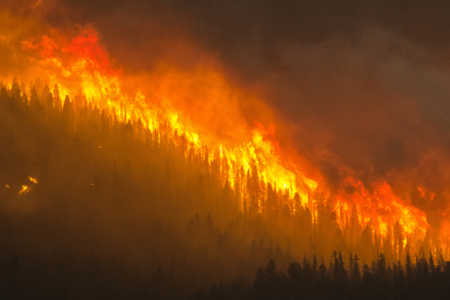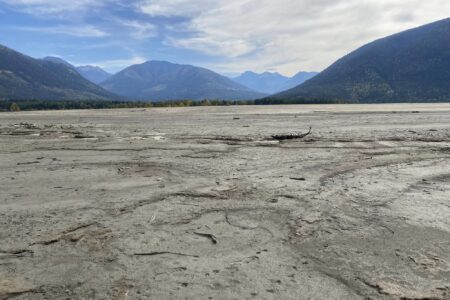Income inequality reframe: The 99 per cent
Blog by Trish Hennessy
Occupy Wall Street is shining new light on the question of how to frame income inequality.
Five years ago, when the Canadian Centre for Policy Alternatives launched its growinggap.ca project, the team of researchers put considerable thought into how we talk about things.
We engaged Environics Research to conduct a series of focus groups with Canadians, where we asked them what they thought about income inequality.
The term income inequality elicited many and varied responses. Was it about feminism and women’s equal rights? Was it about ending racial discrimination? The terminology was so ambiguous it made it difficult for focus group participants to really engage.
We wondered: Was there a way to get the conversation started that truly engaged the majority; that helped them see themselves within the phenomenon of worsening income inequality?
We’d had some history in Canada talking about the problem of income inequality as the gap between the rich and poor. But listening to Canadians in the focus groups yielded a few important insights for us.
Most Canadians in those focus groups saw themselves as middle class (regardless of whether their actual income put them in that category or not). It became clear that being middle class was an aspirational notion to which most Canadians aspire (as opposed to, for instance, wanting to be rich). And that aspiration kept them from really focusing on the lives of the rich or the poor.
They couldn’t identify with the rich: To them, the rich were celebrities, sports stars, high powered CEOs. People who were driven, educated, super talented, willing to take risks, or possessing of some other quality that set them apart from the rest of us.
They had a few issues preventing them from identifying with the poor. If you were short-term poor – someone who had temporarily fallen on hard times and managed to bounce back – it was a little easier for Canadians to relate.
But if you were living in poverty, a phrase commonly used by progressives hoping to end poverty in Canada, the participants in the focus groups immediately thought about the stereotypical images we see in the media: a homeless person sleeping on a street corner, a single mother on welfare. And they had trouble feeling empathy.
For all the positive personal characteristics they were willing to attribute to rich people in Canada, the opposite was true for people living in poverty. Rather than see the rise of the richest and the misfortunes of the poorest as a product of a larger system that treats people differently – unfairly – five years ago, the Canadians in our focus groups saw the problem of systemic poverty from an individualistic standpoint. They were fairly quick to judge and to blame.
What became crystal clear: Their hardened focus was on the troubles they could more readily relate to – the struggles of the middle class trying to keep afloat. There was hope and promise in a healthy middle class and that is what most Canadians had set their sights upon.
We realized then that, despite our best efforts to educate and engage people in the problem of income inequality, talking about it in terms of the rich and the poor was an unconscious form of ‘othering’. We were framing the problem as though it had to do with someone other than most Canadians (since they identified most readily with the struggles of the middle class).
And so we shifted the frame, focusing the lens on the gap between the rich and the rest of us. The intention wasn’t to make the systemic problem of poverty disappear from public discourse but, rather, to show how much the majority of Canadians have in common when it comes to income inequality – that it’s a systemic problem which affects us all. We wanted to reflect Canadians’ reality back to them and focus on what’s at stake.
Among the 30+ reports our project has since produced, we invited some of Canada’s thought leaders to write – in 1,000 words or less – their take on why income inequality matters. Among their chief concerns: inequality heightens social tensions and threatens the health and vibrancy of our democracy.
Five years and a worldwide recession later (a recession caused by irresponsible financial schemes hatched by a handful of bankers and traders on Wall Street), social unrest has been slowly unfolding, from the far reaches of the planet and, now, to coming to a neighbourhood near you.
It started with the Arab Spring, followed by a Wisconsin uprising of middle class workers, G20 protests, Washington and Ottawa protests over Canada’s dirty tar sands, and now, more than 25 days of Occupy Wall Street – to date, a peaceful gathering of American citizens who are fed up with a system that has wildly rewarded the richest one per cent while 99 per cent of Americans grapple with a Great Recession whose impact doesn’t seem to be letting up.
Here in Canada, there is an emerging movement for an Occupy Toronto, Occupy Ottawa, Occupy Vancouver and more.
For all the hand-wringing in the media about what Occupy Wall Street is really about, and for all the assessments by pundits that the protesters there cannot articulate what they want, they have done something very profound.
They are showing us they are ready to stare down powerful corporate interests that prevent America from dealing with its serious fiscal and social issues.
In a democratic world where large groups of citizens taking to the street has come to be viewed by the establishment as anarchy, a threat to rule of law or radical, the Wall Street occupants are revealing the hard limits of the kind of post-9/11 authoritarian constraints on perfectly law-abiding citizens who simply demand their right to be seen and heard. The 99 per cent, the new income inequality frame, has been ignored by governments of all levels, in far too many countries, for far too long.
The Wall Street occupants are showing us that when the system isn’t working for the 99 per cent, something is dangerously wrong with our democracy. And they won’t take it anymore. They want government to work better and they’ve gone to Wall Street to make their point.
Their actions have given any progressive politician worth their salt all of the political cover needed to speak and act on behalf of the 99 per cent without fear of repercussion at the ballot box (the lament of the loss of inspirational political leadership is a subject for another post).
And, they have given us a new frame with which to view income inequality in North America: it is about the 99 per cent. It isn’t about individuals or individual failure. It’s about a system that’s failing the vast majority of citizens who believe things can be better than this.
The evolution of the frame is complete.
Trish Hennessy is a former journalist and national newspaper award-winner who now focuses her work on Canadian Centre for Policy Alternatives‘ Growing Gap project and other core strategic issues since 2006.
Her blog can be found here: http://framedincanada.com/2011/10/13/income-inequality-reframe-the-99/


























Comments